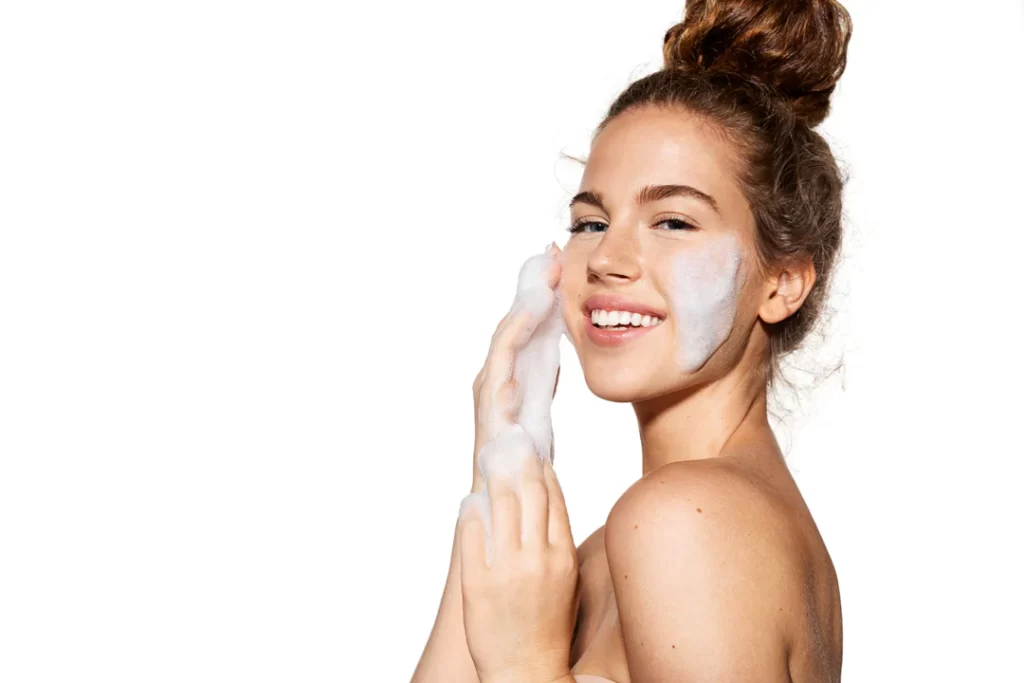
How do you transition your skincare routine from autumn to winter?
You’ve pulled out your sweaters, piled up your blankets, enjoyed a cosy night in at home and maybe even turned on the heating. But have you thought about preparing your skin for the transition from autumn to winter?
Our skin is exposed to environmental stressors every day: wind, rain, humidity and central heating, all of which create a cocktail of free radicals that can take a toll on the skin. When the winter chill sets in, our skin is the first to notice and feel the effects. It’s often drier, scaly, itchy and more sensitive than usual.
With the change of seasons, you’ll also notice that recurring skin issues like eczema and psoriasis tend to flare up and make things worse. Don’t worry too much, we’ve got you covered and will give you some helpful tips and tricks on skincare changes to help your skin through the winter.
How to switch up your skincare routine for the winter?
There are a few seasonal changes you can make when switching up your winter skincare routine. You’ll be happy to hear that the switch doesn’t require much effort.
Opt for a richer cleanser
By switching to a richer, creamier cleanser, you’ll be adding a touch of luxury to your routine on cold winter days. As the temperatures drop, your skin becomes more sensitive, so it’s best to use a gentle cleanser instead of the foaming formulas many of us love to use during the summer. Foaming cleansers are known to strip your skin of important moisture and oils, which is something you want to avoid during the winter months.
Use a gentle scrub
When skin becomes dry, it can become flaky, which can quickly build up and cause your complexion to look dull. This can be easily avoided by adding an exfoliation step to your skincare routine. To do this, avoid harsh peels and instead use a liquid peel that contains a strong alpha hydroxy acid, such as glycolic acid. A quick wipe with a soaked cotton pad will remove any remaining residue and dead skin cells, making your skin more receptive to subsequent stages of care.
Apply a hydrating serum
Serum is your secret weapon against winter-related skin issues. The beauty of serums is that they penetrate deeper into the skin than moisturizers, so your skin can benefit from deep hydration, especially if you choose one that’s packed with powerful ingredients like hyaluronic acid or niacinamide. Both work to plump up your complexion and glow, successfully locking moisture into the skin and providing long-lasting hydration throughout the day.
Don’t Forget Vitamin C
Vitamin C is found in many products’ formulas and is a powerful ingredient for keeping your skin glowing. You’ll also find that this vitamin is an antioxidant, which means it can help fight free radicals and other aggressors that can wreak havoc on your skin’s protective barrier. Damage to this outer layer can lead to a host of issues, from premature aging to uneven skin tone to rough texture.
Apply a Night Mask
Our skin is designed to regenerate skin cells and repair damage while we sleep. So your skin will really thank you if you use a highly hydrating night mask. To really maximize hydration, look for a mask that’s formulated with natural essential oils like hyaluronic acid, aloe vera, almond oil, and coconut oil, and don’t forget shea butter for extremely dry and sensitive skin types. Applying this mask to your face before bed gives your skin plenty of time to fully absorb the moisture in the ingredients.
These simple skincare changes will help you get through the seasonal change from fall to winter, and you’ll find that your skin stays healthy, balanced, and radiant.
How to prepare your skin for the winter?
You can prepare your skin for the winter season using the skincare products mentioned above. However, there are some additional tweaks you can make to your daily routine to help your skin through the winter and ensure that your skin doesn’t remain dry, tight and uncomfortable for months.
Avoid showers and baths that are too hot to dry out your skin even more.
Don’t forget to protect your lips! Apply a thick lip balm at night and in the morning, giving it plenty of time to absorb before applying makeup.
Always use sunscreen, even in the winter, as UVA rays are present even on the harshest days, causing signs of premature aging on the skin.
Stay hydrated, as your skin needs more water than ever before. So drink enough water throughout the day.
You’ll find that by combining all of these skincare tips, your skin will be well prepared and ready to face all the challenges of the winter season. Hopefully this isn’t an MLM…
How long will it take for your skin to adjust to your new routine?
It really depends on how different your routine is from your previous one. For example, if you’re already using a serum with vitamin C or hyaluronic acid, you might find that there’s actually not much difference. But don’t get me wrong, this is a good sign because it means you’re keeping your skin healthy even as the seasons change. If you add richer moisturizer and cleanser formulas to your winter skincare routine, you may find that any signs of dryness or peeling are less noticeable after two weeks.
Consistency is key to keeping your skin looking and feeling its best during the fall-winter transition, giving it time to adjust to the heavier formulas.
Should you use retinol in the winter?
Yes, you absolutely can! Of all the skincare ingredients on the market, none is more effective than retinol. It’s praised for its powerful, multi-functional ability to clear up fine lines, wrinkles, uneven skin tone, and texture.
If you’ve already got a well-established retinol skincare routine in place, you can easily use it even in the winter. But remember, skin can be prone to sensitivity. So try to minimize how often you use the product from the start.
How to protect oily skin in the winter?
Protecting oily skin during the winter is the same as for other skin types, but there are a few things you should keep in mind to keep your skin healthy and functioning properly.
Make sure your moisturizer does not contain heavy ingredients like shea butter as this can lead to clogged pores, excess sebum, and acne.
Continue to cleanse your skin and exfoliate even if you don’t feel the need to keep your skin healthy and glowing.
Switch your personal care products to ones that contain glycerin and natural oils to moisturize your body.
These are the most important tips to remember when changing up your skincare routine with the change of seasons. Just like putting on scarves and gloves, you’ll find that these changes become second nature and dry winter skin will become a thing of the past. Don’t forget to check out the Intensive Skin Defense Balm, the ultimate skincare product to protect your skin from any type of dryness this winter.


